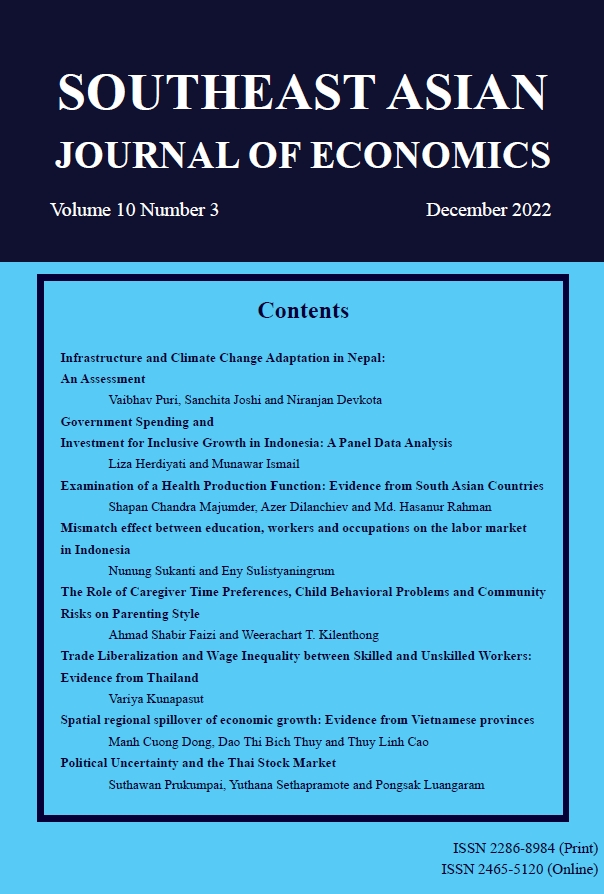The Role of Caregiver Time Preferences, Child Behavioral Problems, and Community Risks on Parenting Style
Keywords:
Parenting style, time preferences, child behavioral problems, community risk factors, developing countryAbstract
This paper investigates the socioeconomic determinants of parenting style in the context of a developing country using early childhood panel data from rural Thailand. Our key findings are that more patient caregivers tend to be more authoritative than authoritarian, caregivers are more likely to be authoritative than authoritarian when they observed better behaviors from their children, and caregivers exhibit more authoritarian than authoritative parenting if they perceived the community to be more dangerous. We also find that families with fewer resources, proxied by wealth, marital status, and parental absence, are more likely to be authoritarian.
Downloads
Published
How to Cite
Issue
Section
License

This work is licensed under a Creative Commons Attribution-NonCommercial-NoDerivatives 4.0 International License.
The submission of a manuscript implies that the paper is an original work and has not been published elsewhere. The author(s) authorize the journal to reproduce or distribute the paper in printed or other electronic forms.







